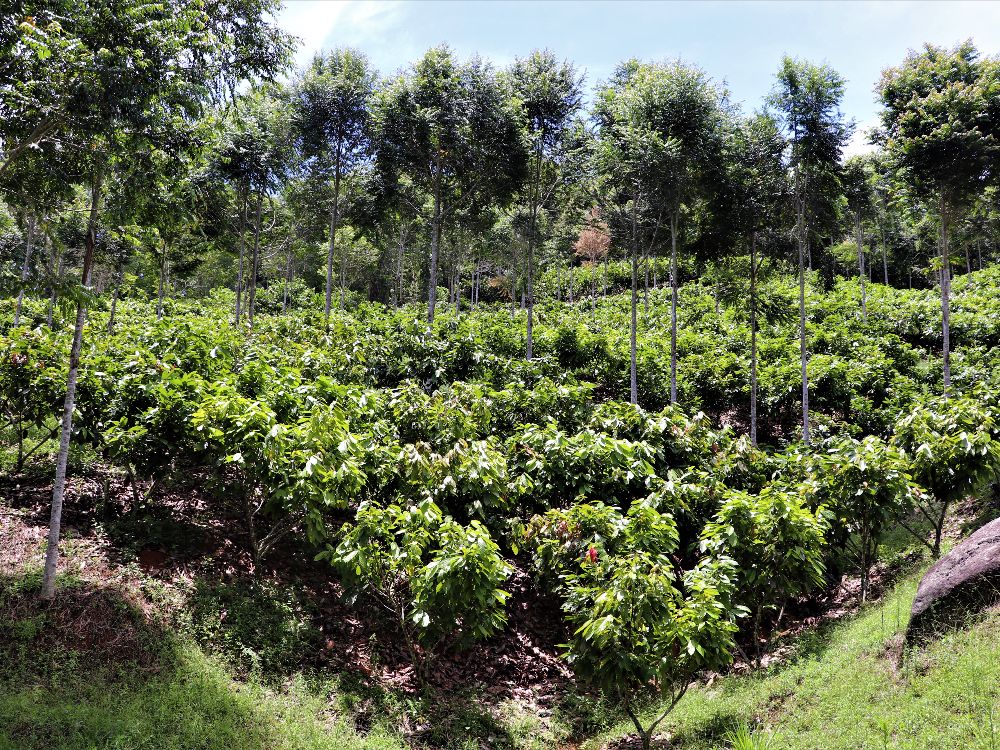- This management will expand the supply of cacao plant material, allowing small- and medium-sized producers to access plants with genetic identity and physical and phytosanitary quality to rehabilitate and renew crops or new plantings.
- With this registration, Antioquia will have three nurseries registered with Instituto Colombiano Agropecuario (ICA) for the propagation of cacao plant material, located in the northeastern and Magdalena Medio subregions of Antioquia.
- This nursery will have the capacity to produce up to 20,000 seedlings. Besides, the great advantage of having the clonal garden registered will be to guarantee the genetic identity of the material and the diligence in implementing good practices throughout the propagation process.
- The propagation system of the cacao plant material at the El Nus Research Center will allow 1) to produce high-quality plant material, 2) to innovate in improving plant material propagation protocols, and 3) to strengthen the capacities of nursery operators and propagators of cacao plant material in Antioquia.
- The added value that producers and extension workers can find in AGROSAVIA is the opportunity to participate in technology transfer strategies, which seek to strengthen the knowledge and technical skills of the different actors in the cacao production system.
San Roque, Antioquia. July 11, 2023. Seeking to produce cacao plant material that allows small and medium producers to access plants with genetic identity and physiological and phytosanitary quality for the rehabilitation and renewal of plantations or new plantings, AGROSAVIA strengthens its infrastructure capacities to respond to these needs, especially with its nursery and clonal garden in the El Nus Research Center, located in the municipality of San Roque.
These spaces complied with the requirements of Resolution No. 0780006 of November 25, 2020, of Instituto Colombiano Agropecuario (ICA) —By means of which the requirements for the registration of nurseries and/or basic orchards dedicated to the production and commercialization of propagation plant material for planting in the country are established.— In addition, these spaces also have another registry, which complements ICA Resolution No. 00002185 of 2019, —by which the registry as a producer of AGROSAVIA's selected seed is extended—.
ICA gave its favorable concept after the entity's technical personnel verified the requirements described in Article 4 of the Resolution and, given its compliance, ICA, as a sanitary entity of the country, granted the certification for the nursery and the clonal garden to produce and commercialize cacao (Theobroma cacao L.) propagation plant material.
Capacities and main generalities of the nursery
With this space, Antioquia expands the offer to three nurseries registered with ICA, which are located in the northeastern and Magdalena Medio subregions of Antioquia, specifically in the municipalities of Maceo and San Roque in the Corregimiento of San José del Nus.
Currently, Antioquia ranks second in cacao production after Santander. However, the department still does not exceed an average yield of 500 kg/ha, which is low compared to the potential of the productive system, which ranges from 1,500 to 2,500 kg/ha.
Researchers Danilo Monsalve, Ruddy Lizette Huertas, and Edna Mompotes from El Nus Research Center of AGROSAVIA commented, "The deficient management of diseases and nutrition, the high prevalence of Creole and hybrid materials, the deficient pruning, the precarious management of records and costs, and the existence of aged and unproductive plantations that are susceptible to rehabilitation and renewal processes, among others, are the main causes for the department not to be as competitive as expected."
Now, the El Nus Research Center will propagate the cacao materials that AGROSAVIA houses (TCS 01, TCS 06, TCS 19, and TCS 13), as well as universal materials, those offered by Fedecacao and Compañía Nacional de Chocolates, which correspond to those that farmers plant due to their commercial acceptance in the markets, found in the National Registry of Cultivars (RNC) of ICA, including, among other clones: CCN 51, I CS 95, ICS 60, ICS 1, ICS 39, TSH 565, TSH 812, EET 8, EET 96, FMA 14, FEAR 5, FTA 2, FSV 41, FEC 2, CNCH 12, and CNCH 13. The following clones will be used as rootstock: IMC 67, P7, CAU 39, and CAU 37.
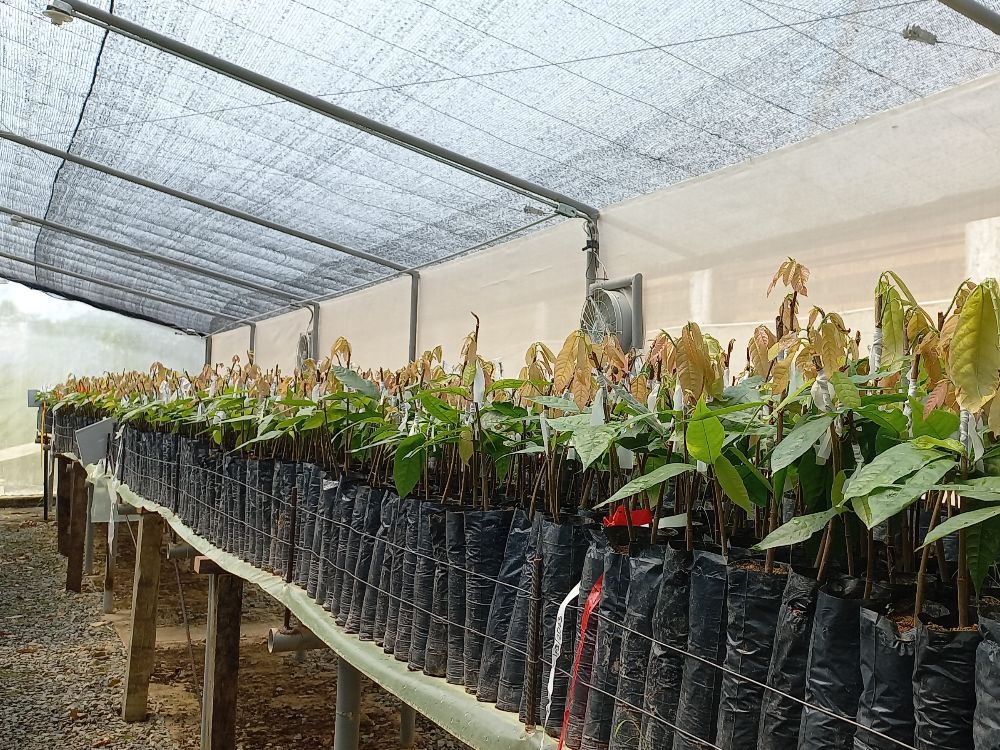
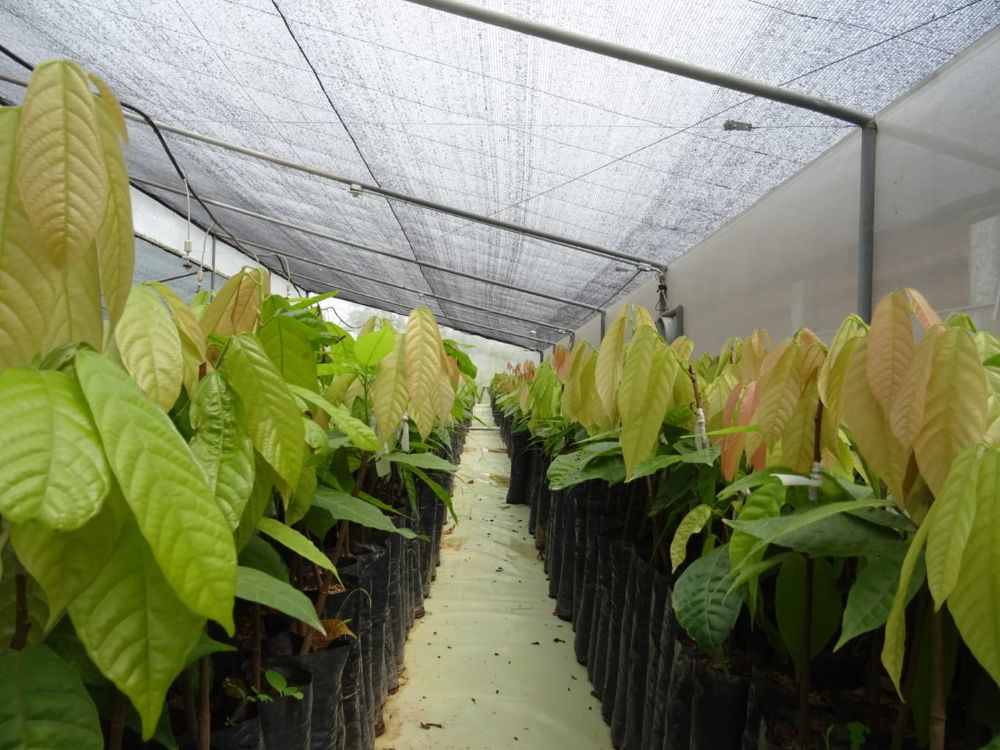
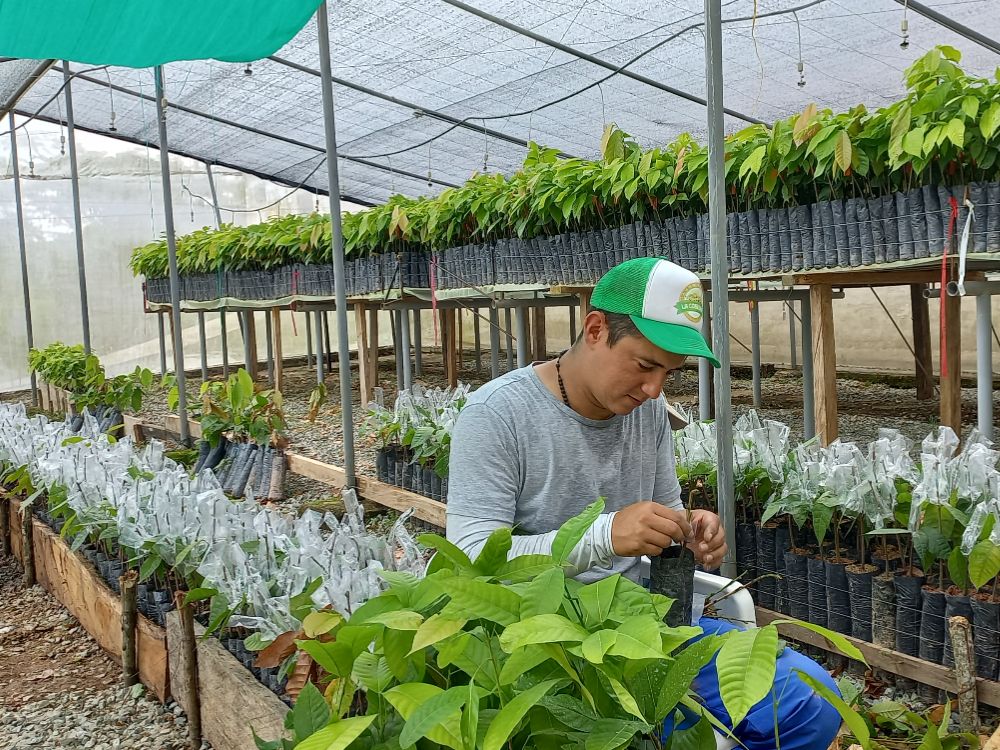
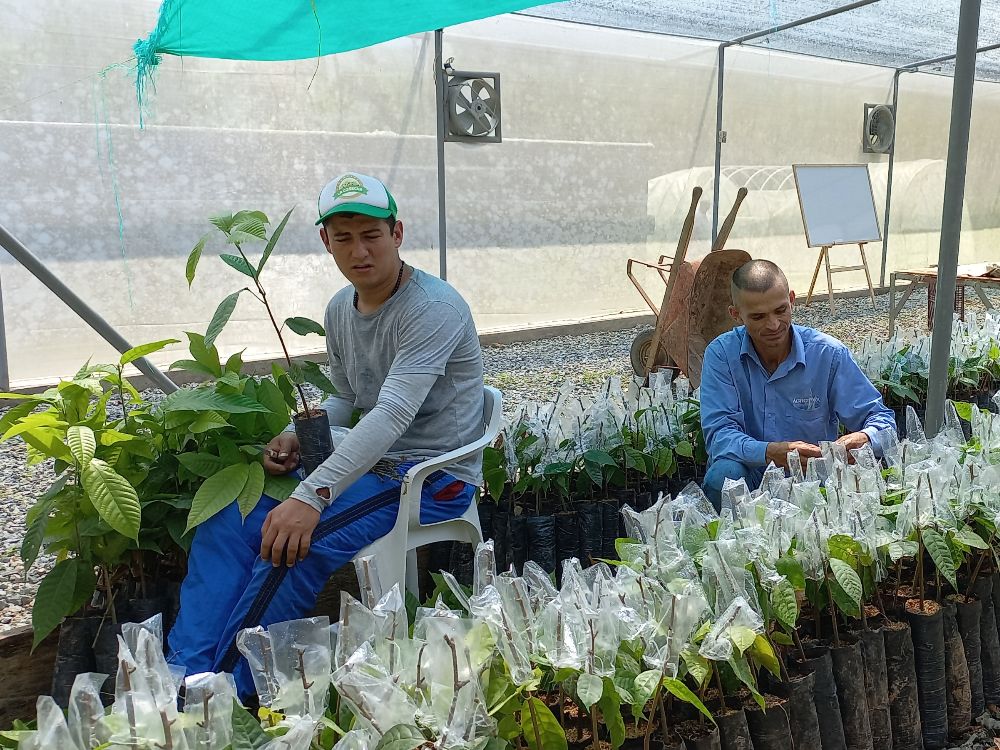
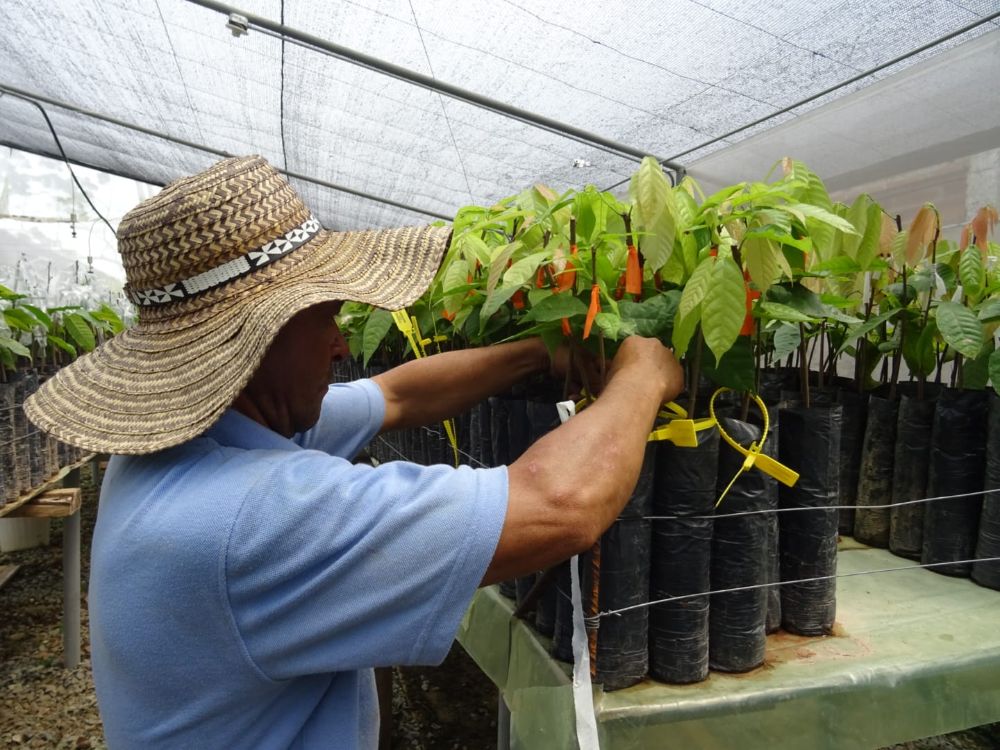
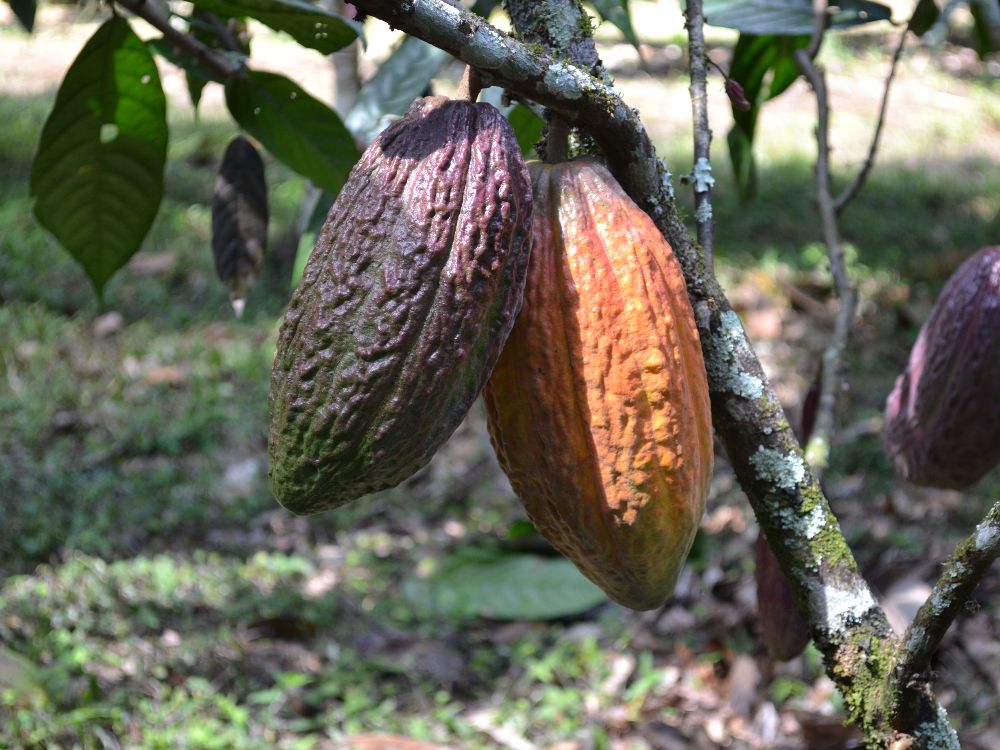
Having a registered clonal garden gives a huge advantage
El Nus has a 5,000 m2 clonal garden with high-density planting and specific management, with the aim of propagating buds of plant material that guarantee high production, resistance to diseases such as Moniliasis and Phytophthora, and adaptability to the agro-ecological conditions of the Montaña Antioqueña and Magdalena Medio subregions.
These trees constantly provide fresh, young, and healthy plant material, an input that guarantees high engraftment when grafting in the nursery.
The production of plant material is complemented by the cacao technology transfer strategy promoted by AGROSAVIA to improve the conditions and capacities of the production system
Producers and extension agents will find an added value in AGROSAVIA: the opportunity to participate in different activities promoted through the cacao technology transfer strategy. These initiatives seek to strengthen the technical capacities of the various actors in the cacao production system, through the promotion of corporate Technological Offers (TO), especially in the northeastern, Magdalena Medio, Urabá, southwestern, and Bajo Cauca subregions in Antioquia.
In addition, the technology transfer strategy promotes the use and implementation of the TO of AGROSAVIA and the recommendations and initiatives that would positively impact the crop with allies such as Fedecacao, Compañía Nacional de Chocolates (CNCH), and Casa Luker, among others, contributing significantly to strengthening the knowledge, technological level and technical criteria of producers and extensionists, through the execution of a dynamic and relevant strategy on agricultural management.
- More information here:
- Nilsen Sánchez Garzón
- Communications, Identity and Corporate Relations Professional
- Research Center La Selva - El Nus
- Communications, Identity and Corporate Relations Advisory Office
- nasanchez@agrosavia.co
- AGROSAVIA



